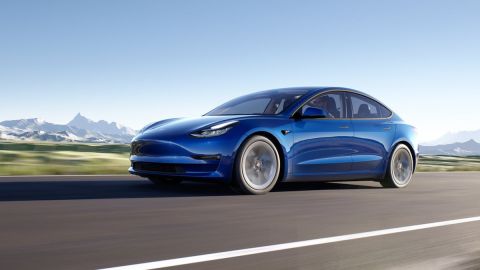Tax incentives for Tesla Model 3 RWD, Long Range EV to be slashed by 50% in 2024
Starting January 1, 2024, a substantial shift in the US federal government's tax incentives will noticeably impact potential Tesla Model 3 buyers as they will have to pay more from their pockets. The Rear-Wheel Drive (RWD) and Long Range (LR) variants of the Model 3 electric sedan, the most sought-after EV options, will see their federal tax credits slashed by 50 per cent. To be more specific, the tax credits for these two options will be trimmed down from the current maximum of $7,500 to just $3,750, thanks to new regulations on battery materials used in EVs.
The substantial shift in the tax credits is coming as an update under the Inflation Reduction Act (IRA) guidance announced earlier this year.
Tesla has also confirmed the substantial shift on its official website, advising potential buyers that they can still benefit from the full tax credit if they take delivery of the Model 3 RWD or LR by 31st of December this year.
On its official website, the EV giant states, “Tax credit will reduce to $3,750 for Model 3 Rear-Wheel Drive and Model 3 Long Range on Jan 1, 2024. Take delivery by Dec 31 for full tax credit. Only for eligible cash or loan purchases."
Earlier this year, in the month of July, Tesla had forewarned customers about possible cuts in the federal tax credit for certain EVs starting January 2024, but the specific variants affected weren’t specified until now. The Model 3 RWD and LR are reportedly going to see the aforementioned cut in tax credits because components used in their battery packs originate from a foreign entity of concern, notably China. However, Tesla hasn’t divulged the precise reasons behind the changed eligibility.
To incentivize purchases before the end of the year, Tesla is offering six months of free Supercharging for buyers who will take delivery of the Model 3 electric sedan before the end of this year. This move is likely part of the EV giant’s strategy to boost sales for the 2023 calendar year, aligning with its ambitious goal of delivering at least 1.8 million EVs this year.
The impact of the revised tax credits on prices and sales of EVs in the U.S. in the coming year remains uncertain. However, there is a great possibility that more electric models might witness reductions in tax credits until domestic EV and battery production becomes less dependent on China.
